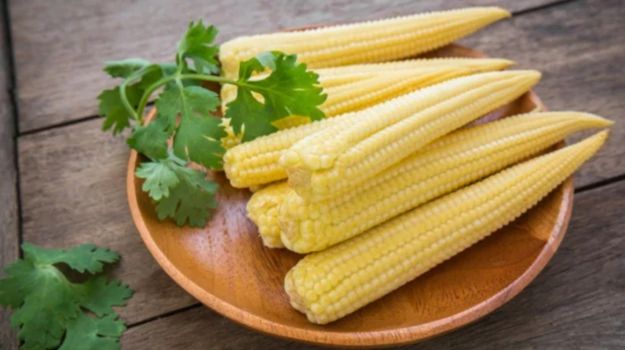Corn, or maize, might be the most well-known grain on the planet. We eat corn in many ways, including natural corn, tortillas, cereals, and hominy-corn meal. We also make use of many of the side effects of corn oil. Corn oil can be called cooking oil. It’s less well-known than its possible excessive fructose corn syrup, which is common in many bundled foods.
It is rich in essential minerals, nutrients, fiber, and cellular reinforcements. It is also important for the heart and may help to prevent blockages.
Corn: What is it?
Corn, also known as maize, is an oat crop that originated in southern Mexico. Consumable elements are either the pieces or seeds of corn. When it is extremely young and sensitive, it tends to be eaten whole. As it grows, the corncob, or the part that holds the pieces together, becomes more serious and less palatable.
Corn has many medical benefits
Because of its value-added interior, it might bring many medical blessings. It can be a delicious addition to any meal and also protects against some ongoing infections due to its high level of phytochemicals. To treat ED in men, you can also purchase buy fildena 100 mg. Below are the obvious clinical benefits.
May prevent constipation
A single cup of it can contain as much as 18.4% of the daily recommended fiber amount. Because maize is an entire grain, this could help to reduce stomach problems such as hemorrhoids and obstruction. A corn animal dwelling area is better than a wheat outbuilding for reducing clogging.
The intake of dietary fiber may help with mass, while mellow stool can aid in regular quit and stress reduction. This interaction ends by stimulating the peristaltic motion and the development of gastric juice, and bile. The chances of IBS (ill-tempered internal circumstance) and loose bowels can be greatly reduced by adding mass to diarrheas.
Could cause weight gain
The yellow variety of It is a staple food in many places. Candy yellow and white corn have 96 calories per 100 grams. This is why it is often consumed for weight loss.
May Provide Essential Minerals
Some fundamental minerals could be found in corn, which could help to ensure proper development and fight infections. According to the Journal of Food Science and Technology’s latest record, corn is a large hotspot for Fe Zn, Cu Mn, and Mg. However, healthy synthesis can shift depending on how the material has been collected and processed.
It is fine to store the nourishing substance while it is still whole or in popcorn form. The nourishing substance can be reduced by steaming, bubbling, and cooking.
You may also find minor elements such as selenium in the phosphate, which can be difficult to control in many weight loss plans. Phosphorus is vital for maintaining normal improvement, bone health, and optimal kidney functioning. Magnesium is vital for maintaining a normal pulse and increasing bone mineral thickness.
Protect your heart
Research has shown that corn oil can reduce cholesterol levels. This could help to decrease the risk of developing other cardiovascular diseases. Because corn oil is very close to an ideal mixture of unsaturated and saturated fats, it can help to increase heart health.
This allows omega-three unsaturated oil to remove the harmful LDL (or terrible LDL cholesterol) and replace them in the prescribed locations. This could reduce the chance of the courses becoming blocked, may lower the risk of stroke and coronary episodes, and may also help to decrease the amount of circulatory strain.
Eye and Skin Care
It is a rich source of beta-carotene. This system has vitamin A inside the body and is essential for maintaining healthy vision and skin pores. A Science overview states that beta-carotene can be a remarkable source of diet, as it is easily modified into the body to the extent required.
Vitamin A can be harmful if too much is consumed. This is why the beta-carotene swap is so amazing. It could also improve the health of the skin and mucous layer, as well as the susceptibility framework.
How much beta-carotene is in the frame that hasn’t been modified into nutrition A? This is being used as a remarkable cellular reinforcement, similar to all carotenoids, and can fight illnesses.
May help manage diabetes
The arena has been experiencing the negative effects of an epidemic of diabetes for many years. Although the exact cause of this epidemic cannot be identified, it is strongly linked to nutrition.
A 2018 assessment by the journal Food Science and Human Wellness found that whole grain corn has a lower chance of developing type 2 diabetes. As indicated with the aid of the Journal of Medicinal Food, usage of its bits aids the management of non-insulin-subordinate diabetes mellitus (NIDDM) and might be powerful in opposition to hypertension due to the presence of phenolic phytochemicals in entire corn.
According to the British Journal of Nutrition, phytochemicals can control insulin’s ingestion and arrival in the body. This can help individuals with diabetes avoid spikes and falls and maintain a stable way of life.
Infographic on the medical benefits of corn
It is rich in beta-carotene. Vitamin A is built into the frame by yellow corn and is vital for proper vision and skin protection.
Cosmetic benefits could be possible
It can be used in the assembly of many corrective devices and can also be applied topically to reduce skin rashes or aggravation. Cornstarch’s products can be used to replace most oil-based products that can cause cancer. These can make up large parts of many restorative treatments. Many common pores and skin creams use oil jam as a base material. This can often obstruct pores or exacerbate skin.
How do you select and store corn?
There are two types of corn: candy corn and subject corn. It is the most popular, while discipline corn is more commonly used in the introduction of flour. It can be used for many culinary purposes. When shopping for new corn, make sure the husks don’t dry out.
It can be purchased in retail stores and commercial enterprises of ranchers. It is wonderful to eat new corn all the time. However, you can also use frozen corn.


